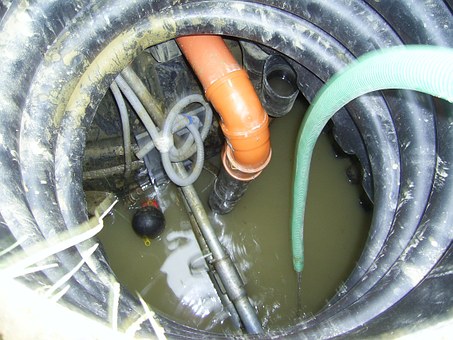What You Need To Know About a Home Sewage Treatment System and How to Maintain It
Did you know that you are creating sewage every time you flush the toilet? If the sewage isn't handled with the care it deserves, it can lead to all sorts of environmental and health problems.

Sewage treatment systems, also known as septic systems, act as on-site systems for treating water where public sewers are unavailable. The most common systems have a soil absorption field, distribution box, and septic tank. The tank serves as a holding chamber for grease, oils, and solids. The solids go to the bottom of the tank and the grease floats on top. The bacteria present in your waste helps decompose it.
Reasons to Maintain Your Sewage Treatment System
The process of treating wastewater involves a few major processes. They remove and inactivate most of the pollutants and harmful organisms in sewage. If you have a failed or failing system, untreated sewage may start ponding on the surface. It may flow over septic tank covers and cause a problem down the line. The overflow serves as a breeding ground for mosquitoes and flies and may promote the spread of diseases.
Failing systems are likely to pollute groundwater. They can contaminate the nearby sources of water including rivers, streams, and ponds. Here are a few other reasons to maintain and care for your sewage treatment system.
• Saving Money
One of the most common causes of system failures is poor maintenance. If you want your system to remain in good condition for a long time, you have to invest in regular preventative maintenance. It is a lot cheaper than having to replace a failed system.
• Community Health
A failed sewage treatment system is a nuisance to the entire community. It lowers the value of your property and may lead to the pollution of nearby water bodies. There are lots of ways through which you can catch diseases from wastewater. One of the most common ones is through direct contact. Many people come into contact with it when working, walking around their property, or swimming. Another way is by eating food that was handled by infected persons.
Maintaining Your Home Sewage Treatment System
• Responsible Use of Drains, Toilets, and Sinks
Be careful what you pour down your sinks, tubs, drains, or toilets. Everything goes to your septic system. The sewage treatment system is only meant to process toilet paper, regular washing wastewater, and human waste going down through the plumbing system in your place. Keep track of your waste to ensure that you aren't overloading your system. If you are keen on the responsible use of sinks, toilets, and drains, your system will work smoothly. It will be quiet and free of odor. It can remain that way for years.
Avoid pouring coffee grounds, spoiled milk, hair plastics, and food scraps down your drains. Manage the waste from your kitchen and toilet as it has the biggest impact on your sewage treatment system.
Contrary to what many people think, sanitary items, condoms, baby wipes, and paper towels do not break down when flushed. Even those that are labeled 'flushable' may block your pipes.
• Minimize Your Household Water Usage
The flow rate of your sewage treatment system should always be higher than your household water usage. Keep a close eye on the amount of water you use to avoid overburdening your system. Your sewage treatment system is specifically designed to meet your needs. If you plan on adding a toilet or shower, the system needs to be upgraded to meet your new needs. Speak with an expert if you suspect that you may be using more water than normal. If you keep pushing your system to higher volumes than it's designed for, the quality of treated water is lower. You may need more frequent repairs.
• Choose Septic Safe Products
Be smart about the cleaning products you use. Your home sewage treatment system hugely relies on naturally occurring bacteria. The bacteria processes and treats wastewater. If you pour harsh chemicals down the drain, you could damage the helpful bacteria.
Maintain balance in your system by protecting them. Use cleaning products with low levels of phosphorus and sodium. Where possible, avoid pouring bleach and antibacterial products down the drains.
• Regular Maintenance
Create a regular maintenance schedule and stick to it. You cannot afford to neglect your sewage treatment system. Routine maintenance will make it easy to detect problems and address them before they turn into bigger problems. Ideally, your system needs to be serviced by a skilled technician every quarter.
The technician will take a look at your system and make the appropriate adjustments. They may recommend future repairs where necessary. This way, you can avoid breakdowns and the need for a replacement.
• Consistent Power Supply
Maintaining a steady power supply may be good for your home's sewage treatment system. Your system cannot work if you don't have a reliable power supply. Avoid switching the power off even when you plan on being away from home for a while. Your service technician will let you know what to do if you plan on going on holiday.
• Divert Rain Water for Your Drain Field
Water saturation will damage your drain field faster than you expect. One of the most common reasons for this issue is when excess rainwater pools in the area. If your drain field becomes soggy, it cannot handle liquid waste. Consider arranging your gutters and landscape to ensure that rainwater flows away from your drain field. Ensure that your roof gutters aren't pointing towards the drain field either. The goal is to avoid making the soil soggy.
• Avoid Draining Hot Tubs Into Your Septic System

Many residential properties today have hot tubs. Even though they are great, you must be careful with them. Ensure that your hot tub drainage isn't close to your septic system. A single tub filled with water may be enough to overload your septic tank. It can push all the scum and gunk out.
Hot tubs shouldn't be installed over septic systems either. Place yours on the part of your property that is opposite to the septic system. Consider the landscape of your house as well to direct water away from your septic drain field.
In conclusion, your sewage treatment systems are more important than you may imagine. Caring for them is not an option. Poorly maintained systems are bad for your health and the environment in general.